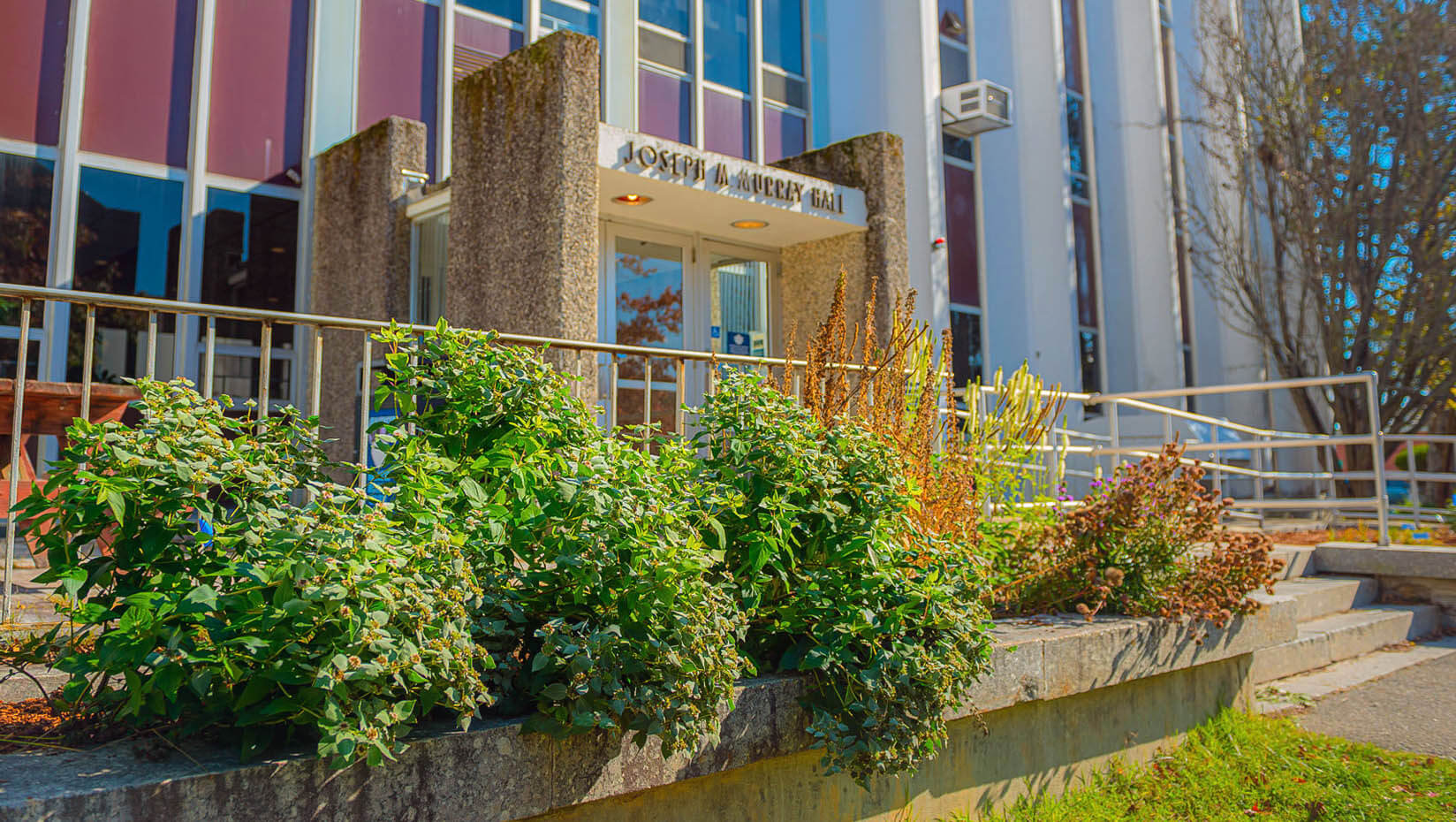
UMaine club builds a rare plants garden at Murray Hall
A Maine Rare Plants Garden at Murray Hall features over 30 rare and endangered species, selected and cultivated by members of the University of Maine Biology and Horticulture clubs.
Some plants featured in the garden, established on 2022 Maine Day with funding from the Alton ’38 and Adelaide Hamm Campus Activity Fund, include Lupinus perennis, Trillium grandiflorum, and Orono sedge. Most of the plants were selected from the National Plant Trust in Massachusetts, where they were propagated by nurseries or professional botanists.
Inspiration for the garden came from Ann Dieffenbacher-Krall, associate director of the School of Biology and Ecology, who thought the planting beds in the Murray Hall courtyard could be used for a pollinator garden. She wanted to expose students and the public to plants that should be growing in Maine, but are either extinct or endangered.
“One of the plants in the mix was Lupinus perennis, which is the native lupine and is only found in pine barrens,” says Dieffenbacher-Krall. “When I volunteered for the Natural Areas program, I would visit sites where rare plants would occur. I drove all over Moosehead in the summer and never found Lupinus perennis, so I thought ‘why don’t we plant rare plants that belong here that people never see out in the wild?’”
Club members say they hope the garden will raise awareness about plant conservation and peak interest in understanding the forces that endanger plants, including habitat destruction or degradation, over-collecting, and climate change.
“Participating in the creation of the rare plants garden on Maine Day was an awesome experience!” says Aldous Hofmann, a senior majoring in biology. “Post COVID lock-downs, a sense of community connection is something that I feel was severely hampered. By helping plant the rare plants garden as a senior, I was able to meet some of the underclassmen in my department and learn about their experiences during the last few years. Having such interesting species and the sense of community that was garnered as a talking point when showing people around the campus is very fulfilling.”
Visit the Maine Rare Plants Garden webpage to learn about each species in it. The garden is an ongoing project; to volunteer, contact Dieffenbacher-Krall, annd@maine.edu.
Contact: Margaret Nagle, nagle@maine.edu
